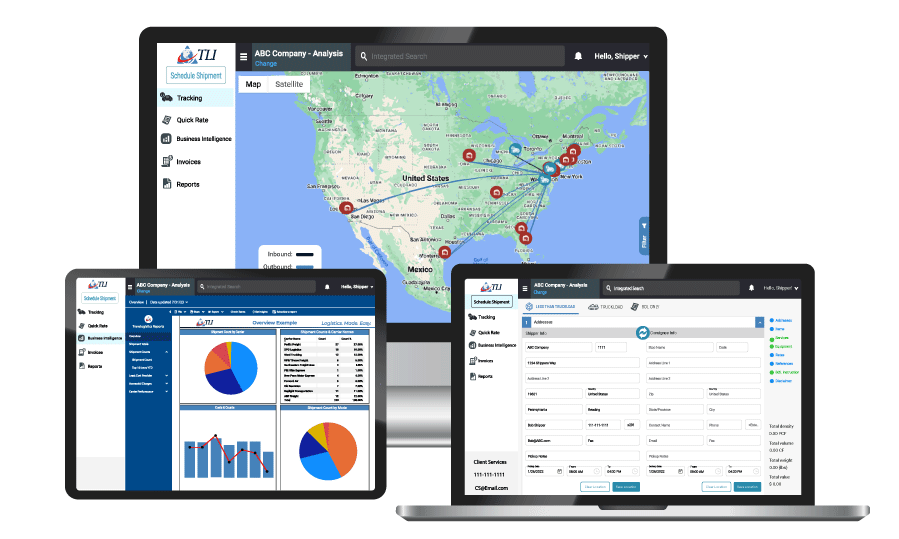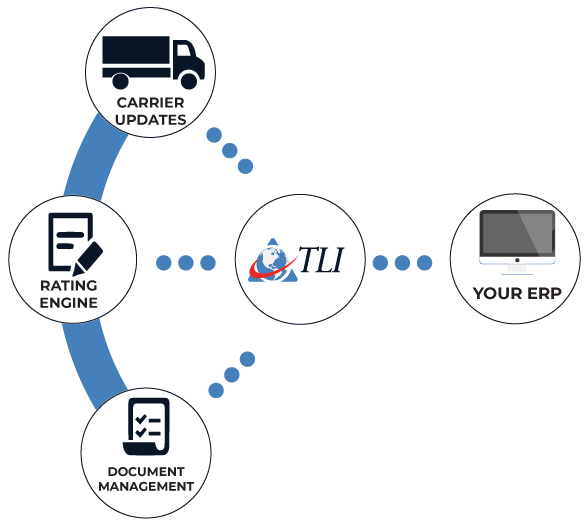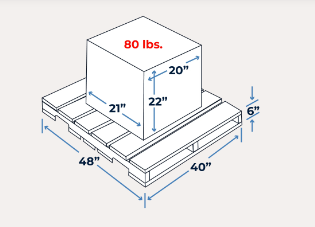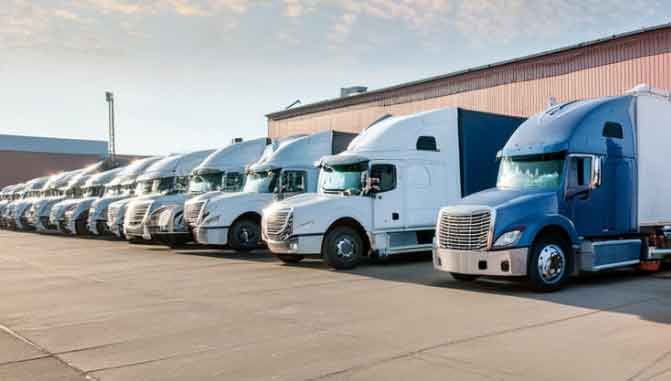CWT in LTL Shipping
CWT: Hundredweight
In various industries, especially those related to agriculture, freight, and commodities, you might come across the term CWT or "Calculated per Hundredweight." CWT is a unit of measurement used to determine the price or value of goods based on a weight per hundred pounds or hundredweight. This article aims to provide a clear understanding of what CWT means and how it is commonly used in different sectors.
What is CWT (Calculated per Hundredweight)?
CWT, short for Calculated per Hundredweight, is a unit of measurement used to establish the price or value of goods based on a weight per hundred pounds (also known as a hundredweight). The term "hundredweight" dates back to medieval times when commodities like grain were sold in standardized weights. In the modern context, CWT is still used extensively in industries such as agriculture, freight, and commodities trading.
In the LTL industry, carriers often establish their rates based on a price per CWT. The weight of the shipment is divided by 100 to determine the number of hundredweight units, and then multiplied by the rate per CWT to calculate the freight charges.
Using CWT in the LTL environment allows carriers and shippers to establish consistent pricing based on weight. It provides a standardized unit of measurement for calculating less than truckload freight charges, making it easier to compare rates and ensure accurate pricing for partial loads.

Calculating CWT:
To calculate CWT, the weight of the goods is divided by 100. The resulting figure represents the price per hundredweight. This calculation is particularly useful when dealing with large quantities of goods, such as bulk agricultural produce or heavy industrial materials.
For example, if you have 10,000 pounds of soybeans, and the price is quoted as $50 per CWT, you can calculate the total value as follows:
- Weight of goods (pounds) = 10,000 lbs
- Price per CWT = $50
- Total value = (Weight of goods ÷ 100) * Price per CWT
- Total value = (10,000 ÷ 100) * $50
- Total value = 100 * $50
- Total value = $5,000
Hence, the total value of the soybeans in this scenario would be $5,000.
Calculating LTL CWT:
In the Less Than Truckload (LTL) shipping environment, CWT calculations are commonly used to determine the freight charges for partial loads or shipments that do not fill an entire truck. Here's an example of calculating CWT in the LTL environment:
Let's say you have a shipment of goods weighing 3,500 pounds, and the carrier's rate is $25 per CWT. To calculate the freight charges, you can follow these steps:
Step 1: Determine the weight in hundredweight (CWT)
- Weight of goods (pounds) = 3,500 lbs
- Weight in CWT = Weight of goods ÷ 100
- Weight in CWT = 3,500 ÷ 100
- Weight in CWT = 35 CWT
Step 2: Calculate the freight charges
- Freight charges = Weight in CWT * Rate per CWT
- Freight charges = 35 CWT * $25
- Freight charges = $875
In this example, the freight charges for the shipment would amount to $875.
It's important to note that the rate per CWT may vary depending on factors such as the distance traveled (zip code pair), the specific carrier (national or regional LTL carrier), any additional services required, and the class or type of goods being shipped. These factors can influence the overall pricing structure in the LTL environment.
By utilizing CWT calculations in the LTL industry, shippers and carriers can accurately determine the freight charges for partial loads, ensuring transparency and facilitating cost-effective shipping solutions.

Common Applications of CWT:
- Agriculture: CWT is frequently used in the agricultural industry to determine the value of crops, livestock, and other agricultural products. It allows farmers, traders, and buyers to calculate the price based on weight more accurately.
- Freight and Shipping: In the logistics and transportation sector, CWT is used to calculate shipping costs based on weight. Freight charges are often quoted in terms of CWT, enabling efficient pricing for both shippers and carriers.
- Commodities Trading: CWT is crucial in commodities trading, where various goods are bought and sold in bulk. It allows traders to determine the value of commodities such as grains, metals, and other raw materials quickly.
CWT Meaning in Shipping
In LTL (Less Than Truckload) shipping, CWT stands for "hundredweight." It refers to the pricing method used for goods that don’t fill an entire truck. CWT represents the rate per hundred pounds (or per hundredweight) for shipping items.
For instance, if the CWT rate is $50 and you’re shipping 500 pounds, the shipping cost would be calculated as 5 CWT * $50, totaling $250.
Hundredweight Advantages:
- Standardization: CWT provides a standardized unit of measurement for pricing, making it easier for buyers and sellers to negotiate and compare prices.
- Scalability: CWT is particularly useful when dealing with large quantities of goods. It simplifies calculations and provides a consistent framework for pricing, especially in industries where high volumes are involved.
- Clarity in Pricing: CWT provides a clear and transparent pricing structure, reducing confusion and ensuring that both parties have a common understanding of the value of goods. Because of the ease of clarity it is possible to implement fixed contract pricing, and to use a LTL rating engine built within a TMS system to consistently get accurate pricing.

CWT, or Calculated per Hundredweight Summary:
CWT, or Calculated per Hundredweight, is a unit of measurement widely used in industries such as agriculture, freight, and commodities trading. It allows for a consistent and standardized approach to pricing based on weight per hundred pounds. By understanding CWT and its applications, individuals can navigate these industries more effectively, ensuring accurate pricing and fair transactions.

Revolutionize your logistics efficiency with our cutting-edge TMS system! Seamlessly integrate our platform with your ERP and gain instant access to powerful tools like our density calculator and freight class calculator. Streamline your shipping processes and optimize freight management like never before!
Delegate CWT Headaches?
TLI Insights
Get the latest logistics insights and tips from TLI's award-winning team. Stay ahead in transportation planning.
Questions? Email us at marketing@shiptli.com




